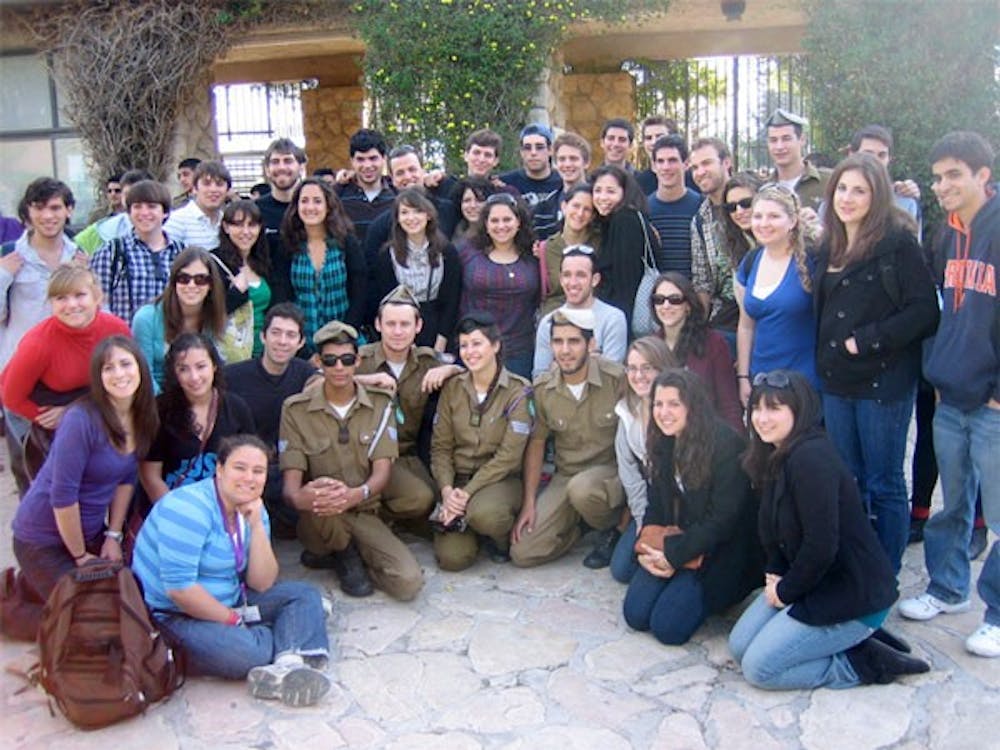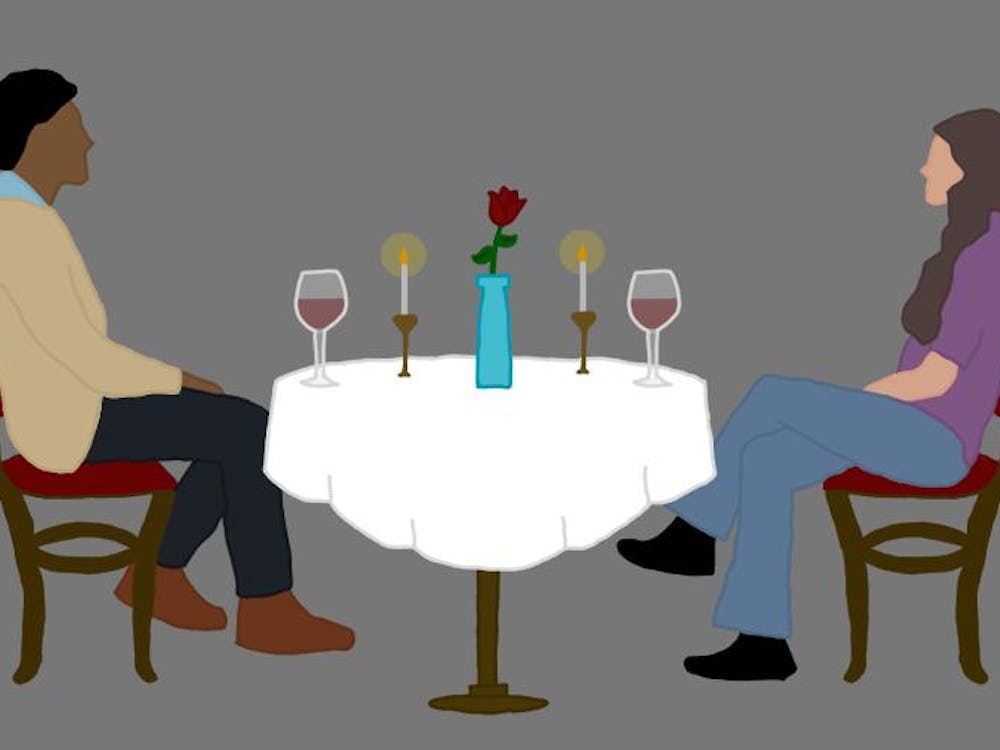Like most college students, I nearly jump every time I hear the word "free." Usually, this golden word is followed by "food," but this time it was followed by "trip."
The Taglit-Birthright Israel program offers one 10-day all-expenses-paid trip to Israel for people ages 18 to 26 with Jewish backgrounds. This year, 40 other University students and I took advantage of this opportunity and traveled with Hillel to Israel for the first time.
Prior to the trip, my friends' main concern about staying in Israel was safety. I received about 15 text messages the day of my departure telling me not to get shot or bombed or die during my trip. Truthfully, I have never felt safer than I did in Israel.
My introduction to Israeli security was with El Al airlines. Two hundred American students lined up at the John F. Kennedy Airport in New York City to be questioned one by one.
The El Al security screeners are the most intimidating airline workers - or people, for that matter - to whom I have ever spoken. I thought American airport security was pretty rough, but it is nothing compared to El Al.
El Al is undoubtedly safer and much more trustworthy than the one security guard who spoke to me during my flight from Virginia to New York City - whose four words to me were: "I like your socks." No one on El Al complimented my blue-striped socks.
Instead, I was interrogated.
"Why are you going to Israel?"
"How do you celebrate Passover?"
"Do you have a bomb?"
Luckily, I passed the security check. Some of my fellow travelers, on the other hand, were not as fortunate. A few of my friends were put through extra screening and even escorted onto the plane. Others were detained in Ben Gurion airport upon arriving at Israel based on other countries they had previously visited.
When we finally stepped outside of Ben Gurion airport, which is in the middle of the major city of Tel Aviv, we were immediately greeted by an armed security guard who followed us during the entire trip. Ironically, he carried a U.S. rifle.
Though I have not traveled extensively through the states, I have yet to stumble across anyone who carries a rifle slung across his back - but in the state of Israel, this is the norm.
In Israel, every citizen is required to join the Israeli Defense Forces. Women spend two years in the army and men spend three. Often, these soldiers will just carry around their M16s on the streets.
To my surprise, no one seemed to fear that so many people were walking around with weapons. After a while, it even seemed a bit comforting. None of these armed citizens was going to attack any of us.
My trip to Israel showed me a new way to live - one without fear that the guy sitting next to you might steal your wallet or pull a knife on you. I felt safer walking the streets of Tel Aviv than I do walking home to my apartment from Alderman Library late at night.
But never during my American life have I worried that a bomb might hit my house at night from Canada or Mexico, whereas Israelis are afraid of bombs from enemy states, especially from states and individuals in the region that do not recognize an Israeli state.
This regular fear of bombings seems to have given them a unique perspective on how to live their lives. Here at the University, I feel that we all get caught up in homework and grades and forget to just live each day we have. My new Israeli friends, however, do not let concern for the future prevent them from living in the present.
Each Birthright bus had seven Israeli soldiers join the group for five days. These soldiers led completely different lives from any American, but I was surprised by how we related to each other and even more surprised at how Americanized Israel is in general.
They listened to the same music we do in America, to the point where Lady Gaga's "Bad Romance" somehow became the theme song - as well as dance - for our trip. One night, my friends and I were arguing about the correct lyrics to Gaga's hit. The Israelis were right, not us.
My peers and I also passed by countless McDonald's establishments - yet another sign of the pervasive American influence.
Despite the cultural similarities, I still stood out as an American, or so I was told. Apparently, my North Face jacket, beanie and Birkenstocks screamed 'American' to every Israeli I passed, as did my blonde hair, green eyes and fair skin.
My utter lack of Hebrew comprehension did not help me in the matter. I knew one Hebrew word coming to Israel: shalom. Amazingly, a person can go pretty far in Israel knowing the word for "hello." Though most Israelis know a great deal of English, the confusion stemming from my inability to understand virtually anything said around me was plastered all over my face.
Despite the language barrier, my trip was a great learning experience. Not surprisingly, I visited all of the typical "tourist" attractions in Israel. I floated in the Dead Sea, rode a camel and hiked Masada. But these activities did not define my trip.
I reveled in my time there, discovering the similarities and differences between life at U.Va. and life in Israel. By the end of the 10 days, however, what stayed with me the most was the thought of my Israeli soldier friends returning to their lives of avoiding bombs while I returned to my life of dissecting Shakespearean plays.







